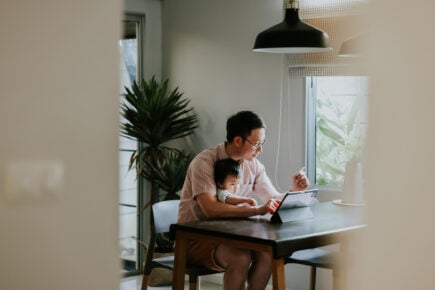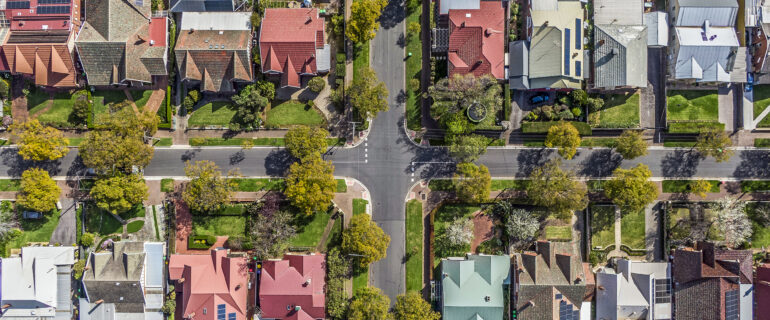The Australian home ownership dream extends far beyond our shores, and many foreigners — essentially, non-residents — are keen to get a slice of the property pie. While permanent residents are typically eligible to buy property, overseas property investors must apply for government approval before purchasing property in Australia.
Recent measures will also affect the way foreign property investors can purchase property. Those changes, which include tripled fees for foreign buyers acquiring existing homes, are part of broader measures that aim to boost affordable housing supply.
» MORE: What to know about buying a house in Australia
Defining ‘foreign’ status for property purchase
For property ownership purposes, ‘foreigners’ are essentially non-residents. However, the ‘foreigner’ designation also includes non-citizens, temporary visa holders, foreign government investors, and certain types of corporations and trusts.
However, the rules governing what constitutes a foreign person are pretty complex. For more information, visit the Australian Taxation Office (ATO) website for a basic summary.
Exemptions
Some overseas investors are exempt from foreign property investment rules. People exempt include:
- Australian citizens living abroad
- New Zealand citizens
- Australian permanent visa holders
- Foreigners who purchase property through a joint agreement are exempt from foreign property investment rules.
Property purchase process for non-residents
Non-resident investors need approval from the Foreign Investment Review Board (FIRB). Applications involve providing personal details, property information, and purpose of purchase. Foreign nationals can use this government website to manage the process.
After receiving approval, foreign nationals must also obtain a tax file number (TFN), register their property and lodge an annual return with the ATO.
Application and fees
You’ll need to pay an application fee to FIRB when applying for approval. The specific amount depends on the property’s value you intend to purchase.
For example, application fees for acquisitions in new or near new residential dwellings or vacant residential land from 9 April 2024 to 30 June 2024 are as follows:
| Amount | Fee |
| Less than $75,000 | $4,200 |
| $1 million or less | $14,100 |
| $2 million or less | $28,200 |
| $3 million or less | $56,400 |
| $4 million or less | $84,600 |
| $5 million or less | $112,800 |
In addition to the regular house-buying fees, you’ll also need to pay the Foreign Citizen Stamp Duty, which varies from state to state.
Eligible types of property
Non-residents can generally only buy new dwellings or off-the-plan residential properties.
An off-the-plan acquisition occurs when you engage in a contract to buy new residential taxable Australian property before its construction is finalised. At this point, you secure a contractual entitlement to the construction of the premises.
To learn more about the types of investment and related applications, have a look at the comprehensive guide provided by the ATO.
Financing the purchase
Only a limited number of lenders actively cater to this market.
These lenders maintain specialised credit teams dedicated to evaluating applications from non-residents and operate 24-hour call centres to manage enquiries from overseas clients. They typically impose no restrictions for Australian citizens residing abroad and adopt flexible lending policies tailored for temporary residents, specifically those holding 457 visas, 309/310 visas, and TSS visas.
Non-residents may face stricter lending criteria, usually requiring a larger deposit, often around 20%. A mortgage broker can assist you with locating the right loan for you.
» MORE: How to get a home loan in Australia
Annual vacancy fee
The vacancy fee serves as a financial motivation for foreign property owners to offer their residential dwellings in Australia for rent, thereby contributing to the increased housing availability.
Ensure your dwelling is residentially occupied, genuinely available for rent, or rented out for 183 or more days (6 months) within 12 months. You may be exempt from paying the vacancy fee.
» MORE: What to know about rentvesting
Property taxes
A withholding tax applies to the sale of Australian real estate. Foreigners who can buy property in Australia are also subject to capital gains tax (CGT) on sales without the exemption from the main residence.
For contracts entered into on or after 1 July 2017, anyone purchasing Australian real estate for $750,000 or more must withhold 12.5% of the purchase price unless the vendor provides a clearance certificate.
Foreign residents selling property in Australia must declare assessable income, including rent and capital gains, in an annual tax return, and they can claim a credit for the 12.5% withholding tax paid, requiring a tax file number for lodging.
Need more information?
Visit the Australian Taxation Office guide to foreign person property ownership in Australia. Or, call the ATO on the following numbers:
In Australia on 13 28 66.
If you do not speak English well, phone the Translating and Interpreting Service on 13 14 50.
Calling from overseas, dial +61 2 6216 1111
If you do not speak English and need help from the ATO, call the Translating and Interpreting Service at +61 3 9268 8332.
How does Australia welcome foreign property investment?
According to the Treasury Department, Australia welcomes foreign investment but reviews proposals to ensure any approved investment is done so within the national interest.
To that end, Australia’s recent changes related to foreign property investors are part of an effort to ensure the benefit of foreign investment. The goal? To ‘increase Australia’s housing stock and provide more homes for Australians.’
In addition to the decision to triple fees for foreign buyers acquiring existing homes, other initiatives aiming to boost the affordable housing supply were introduced. Those include increased fees, stricter penalties for vacant properties, and enhanced compliance efforts to align foreign residential property investment with national interests.
These measures come from Treasurer Jim Chalmers’s package, Foreign Acquisitions and Takeovers Fees Imposition Amendment Bill 2024, which received the Royal Assent from parliament on 8 April 2024. The package came amid Australia’s housing crisis, which has made home ownership increasingly out of reach for ordinary Australians.
Contextualising recent legislative changes
New housing data reveals Australians now require an annual income exceeding $300,000 for comfortable home ownership. Market researcher Suburbtrends analysed more than 22,000 property sales in October 2023 and found that the median house price is now nine times the average annual income[1].
In addition, last year, overseas migration added a population equivalent to that of the Australian Capital Territory. According to the Australian Bureau of Statistics[2], the net gain from overseas migration in the year ending 30 June 2023 reached 518,000 people, marking the highest estimate for net overseas migration in recorded history.
During that period, Australia completed only 170,000 new homes against its target of 1.2 million homes[3].
Potential impact
To alleviate the crisis in the past, the government has attempted to restrict foreign nationals from purchasing established property in Australia, except in specific cases like work or study arrangements. However, these new measures aim to encourage foreign buyers to invest in new housing developments by tripling fees for established dwellings.
This move is expected to increase housing stock, boost the construction industry, and support economic growth. Additionally, higher vacancy fees are thought to incentivise foreign investors to make unused properties available for rent. Furthermore, commercial foreign investment fees for build-to-rent housing projects will be standardised to help increase the development of such projects across the country.
These changes were announced on 10 December 2023 and began to take effect days later, on 14 December 2023.
Frequently asked questions
Yes, nothing stops a foreigner from getting a home loan in Australia if have approval from the Foreign Investment Review Board (FIRB) to buy real estate.
Foreign nationals must pay Foreign Citizen Stamp Duty when purchasing property. The rate varies by State and Territory, but it is higher than the standard stamp duty tax.
A ‘foreigner’ is a non-resident, non-citizen or temporary visa holder. Other types of overseas property investors subject to Foreign Investment Review Board (FIRB) approval include foreign government investors and certain types of corporations and trusts.
Article Sources
-
Suburbtrends, “Australia's Housing Market Disconnect,” accessed April 30, 2024.
-
Australian Bureau of Statistics (2022-23-financial-year), “Overseas Migration,” accessed April 30, 2024.
-
Bryce Yardney (Michael Yardney’s Property Investment Update), “Are we on track to build 1.2 million homes in Australia?,” accessed April 30, 2024.
DIVE EVEN DEEPER

What Determines Home Loan Eligibility?
Lenders assess both personal and financial factors to determine home loan eligibility — how qualified you are for a mortgage.

Are Rent-To-Own Homes Scams?
To avoid rent-to-own home scams, beware of illegitimate sellers, predatory prices, and contracts with hidden fees and nasty surprises.

How Do Non-Bank Lenders Work?
Non-bank lenders have a credit licence and offer products like loans and credit cards. They can’t operate as a bank and accept deposits.

10 Questions To Ask Your Mortgage Broker
A mortgage broker can be a great asset whether you’re a first-time home buyer, looking for an investment property or are thinking about refinancing your existing mortgage. Make sure they’re a good fit for you by asking the right questions.

